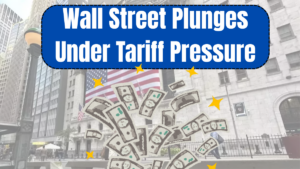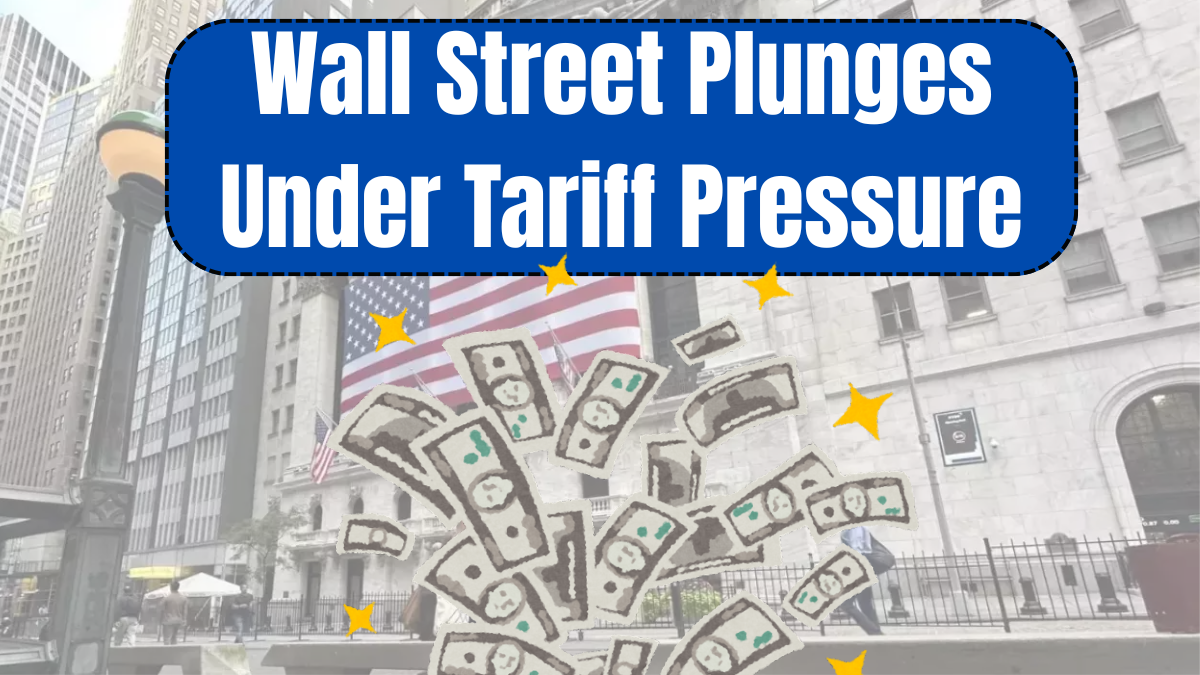The global financial ecosystem was rocked for a second straight day as US markets witnessed a severe sell-off triggered by intensifying trade tensions. After China announced additional tariffs on American goods, investor panic led to one of the most volatile sessions since the pandemic era, dragging major US indices into steep declines.

China Strikes Back With 34% Tariff
On April 4, 2025, China responded to the Trump administration’s new tariff plans by announcing additional 34% tariffs on US imports, effective April 10. This retaliation has escalated fears of a full-blown trade war, unsettling equity markets across the globe.
The sharp reaction came after the US government imposed fresh tariff layers, fueling inflationary concerns and growth uncertainty—both of which continue to dampen investor confidence.
Wall Street Suffers Steepest Decline in Years
The US equity market bore the heaviest impact as investors began exiting riskier assets. Over the two-day period from April 3 to April 4, major indices saw deep red across the board:
-
Nasdaq 100 plunged nearly 10%, leading the broader market meltdown
-
S&P 500 declined by 8%, erasing $2 trillion in market value on April 3 alone
-
Dow Jones dropped 7%, reflecting widespread sell-off across sectors
The Nasdaq Composite is now down nearly 21% from its December 16, 2024, peak of 20,204.58, pushing it dangerously close to bear market territory.
Tech Stocks Face the Biggest Blow
Tech giants led the rout, particularly the “Mag 7” companies, which include major players like:
-
Apple
-
NVIDIA
-
Amazon
-
Meta
-
Tesla
-
Microsoft
-
Google (Alphabet)
Among these, Apple and NVIDIA were among the worst hit, each losing nearly 13% in just two sessions.
The broader tech sector, which had been riding high on AI innovation and strong earnings earlier this year, now faces heightened volatility due to supply chain risks, pricing pressures, and geopolitical instability.
Jerome Powell’s Take on the Situation
Federal Reserve Chair Jerome Powell, in an address on April 4, commented on the economic impact of the newly imposed tariffs:
“We expect these tariffs to raise inflation and reduce growth, but it is too soon to say what will be the appropriate path for monetary policy.”
Powell added that the Fed would wait for further clarity before making any policy changes. This cautious stance, while expected, did little to calm anxious investors.
FAQs
What caused the recent crash in US stock markets?
The crash was triggered by China’s announcement of a 34% tariff on US goods, following the Trump administration’s aggressive trade stance. This reignited fears of a trade war.
How much has the Nasdaq fallen?
The Nasdaq 100 has dropped nearly 10% over two sessions, while the Nasdaq Composite is down about 21% from its December 2024 high.
Which tech companies were hit hardest?
Apple and NVIDIA saw the steepest declines, both falling by approximately 13%, followed closely by other Mag 7 stocks.
How much value did the S&P 500 lose?
On April 3, 2025, the S&P 500 shed $2 trillion in market value, making it one of the worst one-day losses in recent years.
What did Fed Chair Jerome Powell say about the tariffs?
Powell said the tariffs would likely raise inflation and slow growth. He emphasized the Fed’s wait-and-see approach regarding interest rate or policy changes.
Click here to know more.
Aanchal is a passionate writer with a keen interest in storytelling, content creation, and creative expression. She enjoys exploring diverse topics and crafting engaging narratives that captivate readers.
